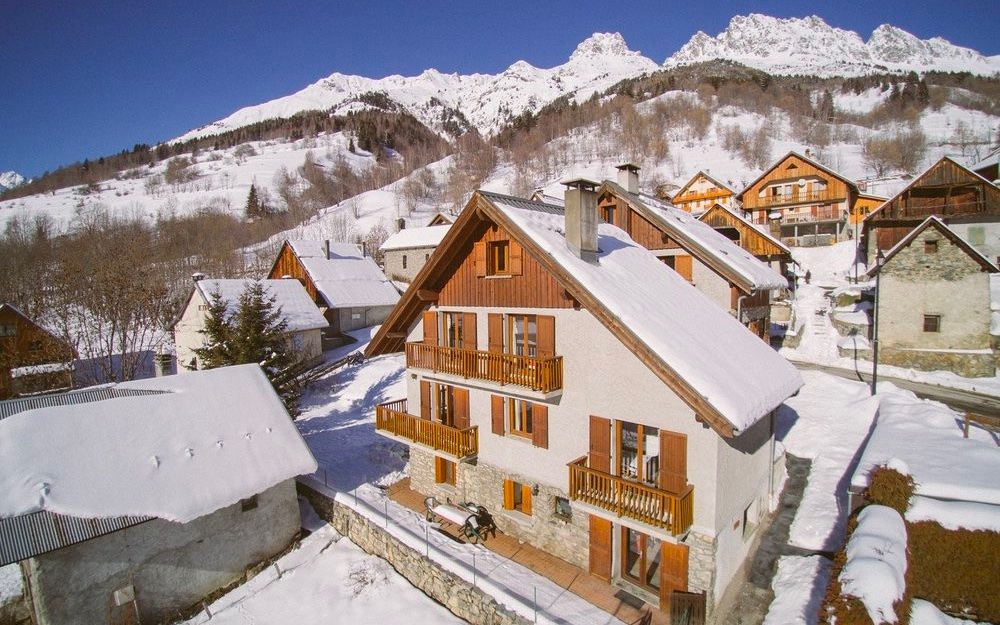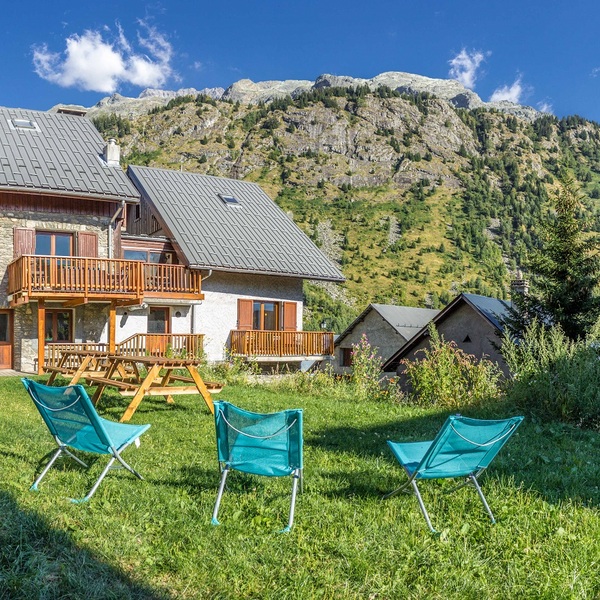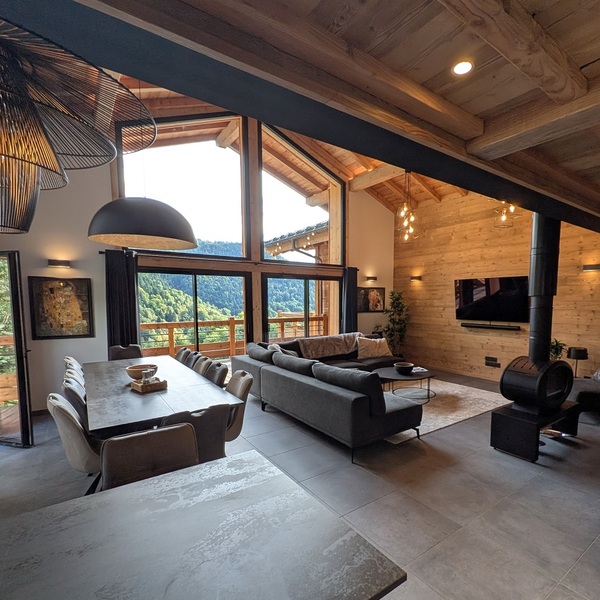Even if it looks like it will be a beautiful day in the valley, in the spring or fall it can be quite chilly high in the mountains if the sun isn't beaming. Every 1,000 meters uphill, the temperature drops by an average of 1 degree. And if the sun also hides behind a cloud, it can cool down considerably in no time. Fortunately, Vaujany (located in Oisans of the French Alps) is a special place that receives 300 days of sun a year!
Don't be surprised by sudden cold and be well prepared with these warm-weather tips.
Layers, layers, layers

When you run, your heart rate goes up and your blood is pumped around faster. As a result, your cells have to work faster and consequently more waste products are secreted. It is through sweating that these substances can leave your body. From cooled down sweat you get cold very quickly and then warming up is a real chore.
How can you ensure that sweat is discharged quickly? It's simple with the time-honored layering trick. Start with a thermal under layer. Put on undergarments made of polyester that can quickly wick away sweat. The second layer is the insulating layer. Think wool sweater, fleece shirt, ski sweater, body warmer. The third layer is a protective layer. Preferably wind and waterproof, for example, a nice ski jacket or an outdoor jacket.
The trick with the layers is that you can always take something off if it turns out you are dressed too warmly after all. Therefore, bring a backpack to carry your extra clothing.
Cold start
If you want to take a brisk walk, preferably start with a cold start. That is, you start your walk with so much clothing on that you think you will be just too cold. Step briskly for 10 minutes. You will find that you will naturally get warm enough. If not, put on something extra. Still too warm? Remove a layer.
If you stop to take a break, always put on something extra right away. Don't wait until you get cold.
Gloves

If you cool down, you often notice it first on your hands. So treat your cold hands to a pair of gloves. Choose thin, flexible gloves with a water-repellent outer layer. These can also be heated gloves, where you decide how much heat you want to pass through the heat conductors.
Socks
Besides your hands, your feet also get cold quickly, especially if you stop moving for a while. Cold feet are quite annoying because from your feet, your bene also cools quickly. Therefore, always choose a good breathable sock. Should this not seem warm enough to you, there are also heated socks. These are socks with heat conductors activated by a battery. They ensure wonderfully warm feet!
Hat

About 10% of your body heat is lost through your head. So a hat is a real must when it comes to the cold. It makes you feel more comfortable and protects your vulnerable ears. So put it on.
Create air
Tight clothing may be fashionable, but it's not very useful against the cold. Wide pants, big coats, space in your shoes, it creates an extra insulating layer of warm air between your skin and the outside world.
Don't be surprised
Before you leave, take a moment to check the weather forecast. How cold is it going to be? Will there be a lot of wind? The latter is especially important. With a gusty wind, the wind chill can be much colder than the thermometer indicates.
Warming up your muscles
Prevent injuries by warming up your muscles beforehand. This is especially important in cold conditions. Also keep your leg muscles nice and warm by wearing a good pair of thermo hiking pants or thermo underwear under your pants. In extreme cold, rain pants are also handy. But then be careful not to sweat.
Hiking boots

Start with nice warm socks in your hiking boots. Don't over-tighten your laces. Remember: create air. With the cold usually comes slipperiness. Take care! Choose waterproof shoes with breathability and a good tread.
Protect your face
Even though it feels chilly, high in the mountains you are closer to the sun and UV radiation is higher. Always protect your face with at least factor 30+.
Energy

Your body needs energy to maintain its temperature. Therefore, eat enough before you start your hike and, especially on a longer hike, take energy-rich food with you, such as energy bars.
Hydration
When it is cold, you are usually less likely to feel thirsty. However, your body loses moisture even in the cold, including through your breathing. Therefore, even in winter, drink enough during hikes, even before you get thirsty. A thermos is ideal, because then you have both drink and warmth with you.
Tagged with;














